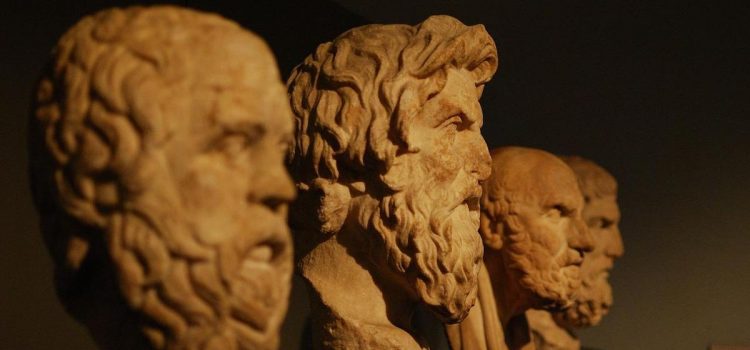

This article is an excerpt from the Shortform book guide to "Justice" by Michael Sandel. Shortform has the world's best summaries and analyses of books you should be reading.
Like this article? Sign up for a free trial here.
What is the meaning of the Aristotelian concept of “telos”? What is the basic idea behind the teleological argument?
Aristotle had a “teleological” view of the world. He believed that everything had an end goal or purpose (a “telos” in ancient Greek). According to Michael Sandel, the author of Justice, Aristotle used this view to explain politics as a whole as well as the relationship between politics and individuals.
Keep reading to learn about Aristotle’s telos doctrine and how it applies to justice and society.
Teleology and Justice
According to Aristotle, the telos of politics is to create laws and a society that help people live satisfying and virtuous lives. While liberalism looks to give people the opportunity and freedom to live well and be moral if they so choose, Aristotle believes that there shouldn’t be a choice.
However, the definition of “living well” varies depending on the person, explains Aristotle—different kinds of people have their own different telos (purposes in life) and require different things to achieve them.
For example, imagine someone who’s directionless and can’t function in society on their own. To Aristotle, this person would have the telos of obedience—for them to flourish and live the best possible life, they’d need direction, supervision, and help from a superior. Aristotle says that in this case, enslaving this person is moral—it helps both the enslaved person and the enslaver. However, if the enslaved person rejected their status or tried to escape, then Aristotle says they should go free, since their rejection shows that they don’t have the telos of being enslaved.
| What’s Your Telos? While Sandel mentions that Aristotle defines “living well” differently for different people, he doesn’t explore in depth what these definitions are or what they mean. For that, we can look to Aristotle’s Nicomachean Ethics. In his Ethics, Aristotle explains that living virtuously is the telos of humanity—our purpose or goal in life—and that different kinds of people must emphasize different virtues depending on their abilities. Aristotle believes that these virtues are hierarchical in their “goodness,” meaning some people are naturally able to become more “good” than others. Here are the three main categories of virtue that Aristotle believes are the telos of humanity, ranked in order from least to most good: 1) Obedience: In his Politics, Aristotle argues that some people have the telos of obedience. This means that how well they live their life depends on how well they obey those above them in society. Aristotle says that obedience is the telos of “natural slaves” (as Sandel mentions), women, and children. According to Aristotle, these groups cannot and should not aspire to higher intellectual or moral virtues—they should just obey. 2) Moral virtue: While those with the telos of obedience simply need to follow what others say is best, Aristotle explains that free men must develop their moral virtue to determine the best thing to do in any given situation. He suggests that for these free men, moral virtue is the telos of their social interactions—being moral is the best way they can conduct themselves, and is therefore the goal of the social parts of their lives. 3) Wisdom: Aristotle claims that wisdom, or philosophical knowledge, is the greatest virtue of all and the ultimate telos of free men. While humans are social and moral virtue must guide those social interactions in a good life, Aristotle explains that the best possible human life will devote as much time as possible to developing philosophical knowledge. |

———End of Preview———
Like what you just read? Read the rest of the world's best book summary and analysis of Michael Sandel's "Justice" at Shortform.
Here's what you'll find in our full Justice summary:
- A philosophical look at the goal of our society and its laws
- What a moral and just government and society look like
- Sandel's suggestions for how to create a more moral world






